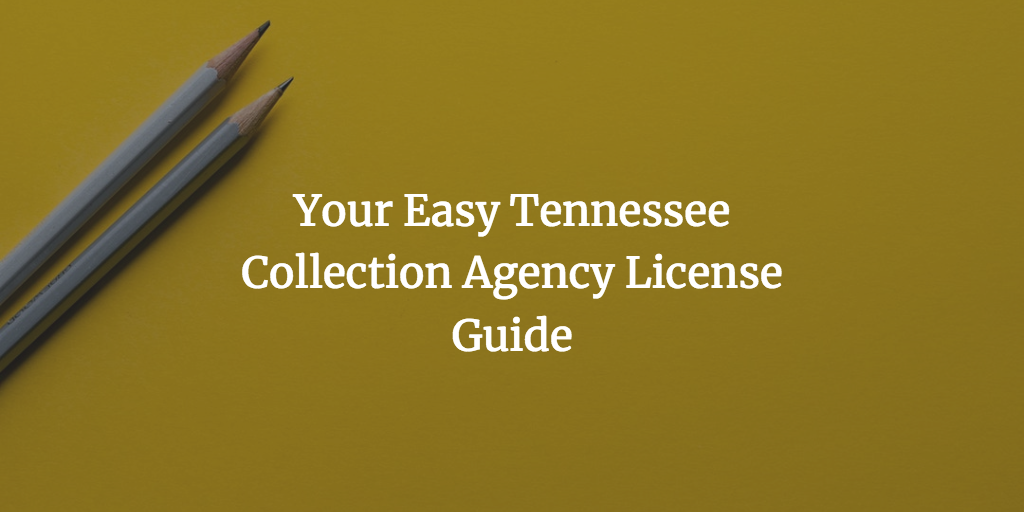How to Get a Tennessee Collection Agency License
Are you thinking about starting a collection business in Tennessee? Your first step to realizing your plans is to obtain a Tennessee collection agency license from the state Department of Commerce and Insurance.
Any entity that wants to engage in debt collection has to undergo the licensing procedure. This is how state authorities ensure that you are suitable for conducting such a business. Among the requirements you have to meet is obtaining a Tennessee collection agency bond.
There are a number of other criteria you need to meet, which you can consult below. Getting acquainted with them before launching the licensing process is a good idea, as you’ll have a smoother start with your new endeavor.
Learn how to open a collection agency in even more detail by downloading our FREE ebook guide!
The Tennessee collection agency license requirements
In order to apply with the Collection Service Board at the state Department of Commerce and Insurance for your right to operate as a collection agency, you will have to fill in the Tennessee collection agency license application. All relevant forms are available online. You will not need a license if you are a passive debt buyer or execute debt collection under court orders.
Along with a completed application form, you also need to present a list of other documents that prove your qualifications and financial stability. These include:
- An up-to-date financial statement prepared by a licensed public accountant or a CPA; it has to show that you have a distinct fiduciary or trust bank account with enough funds to distribute to all clients any due payments
- Complete personal information in the form
- Full set of documents for your business entity, including a registration with the Secretary of State
- Posting a surety bond in an appropriate amount (between $15,000 and $25,000, depending on the number of employees you have)
- Payment of the $750 application fee, which is non-refundable
If your application is approved, you will also have to pay a $600 registration fee and $25 for each solicitor you want to register. In case you want to have additional branches besides your main office, you will have to complete the branch application for each of the offices. You will also have to pay a $100 registration fee and $25 for each solicitor for these branches.
Every year, you will have to undergo the state collection agency license renewal process to keep your right to operate active.
Getting your surety bond
Among the list of requirements you have to fulfill is posting a surety bond. The required amounts are the following:
- For 1 to 4 employees — $15,000
- For 5 to 9 employees — $20,000
- For more than 10 employees — $25,000
The respective official bond forms are available via the link with forms mentioned in the previous section.
Your surety bond cost is formulated on the basis of these required amounts. It is called the bond premium, and represents a few percents of the bond amount. If your finances are in good shape, the price is about 1% to 3% of it. When you apply with your surety, it will establish the bond cost by scrutinizing your credit score, business financials, and any other assets. The stronger these factors are, the smaller your bond premium is likely to be.
The goal of the bond criterion is to ensure that you will follow the law in your operations as a collection agency. It functions like a safety mechanism that protects your customers and the state against illegal actions you may engage in. Harmed parties that have suffered damages due to such actions can seek a reimbursement via a bond claim.
Do you have further questions about the licensing and bonding process, or have tips from your own experience? Please share them in the comments section.





